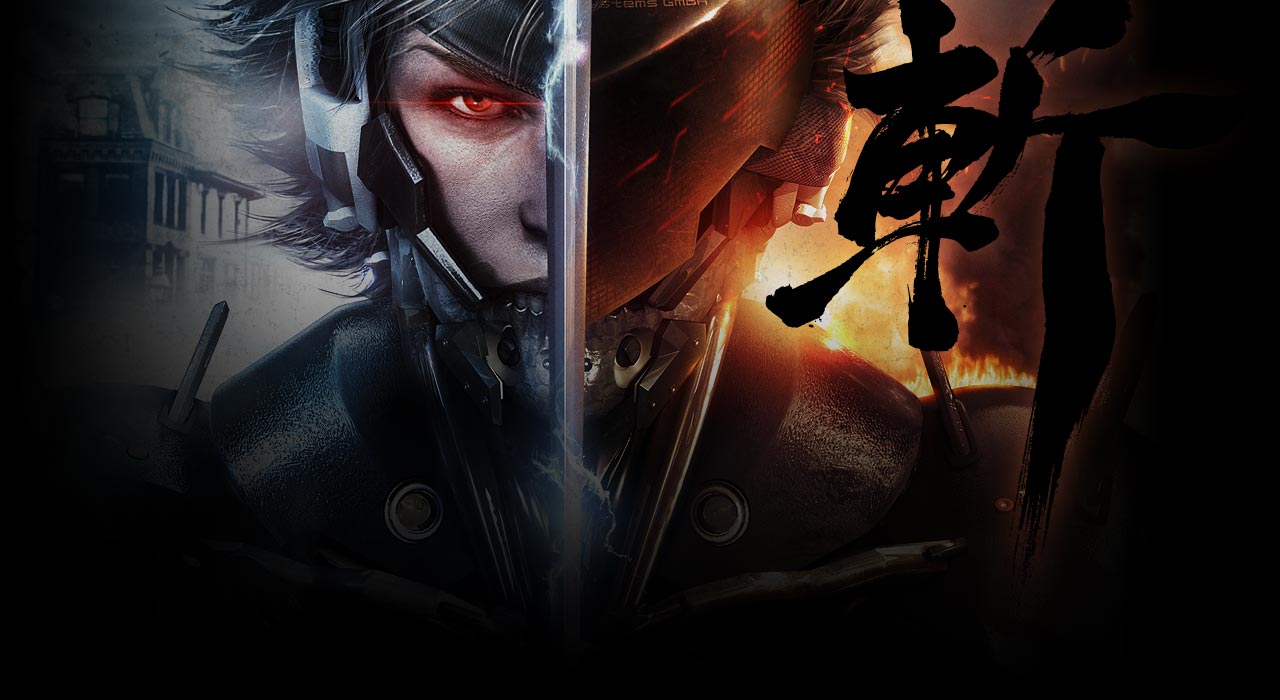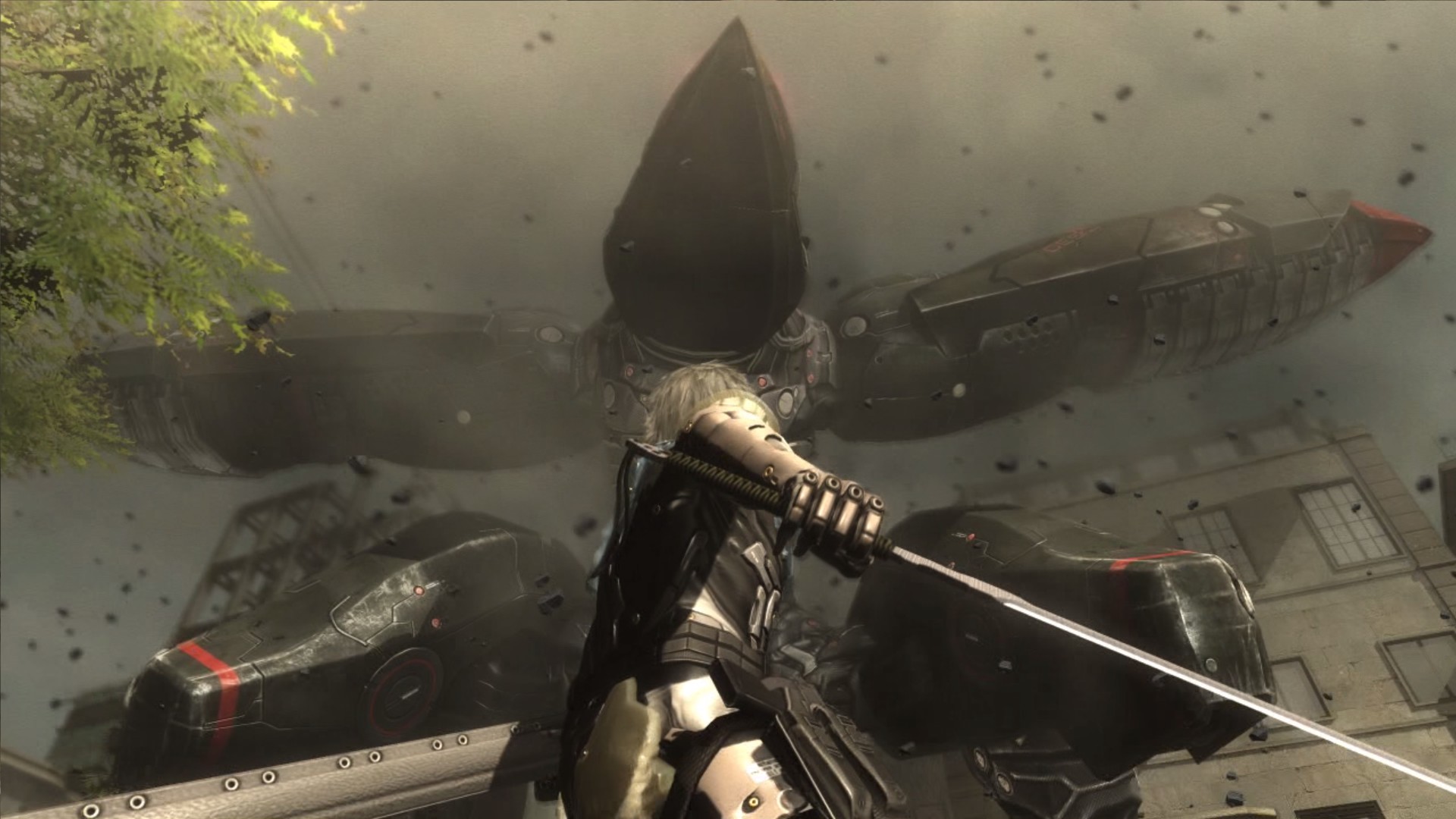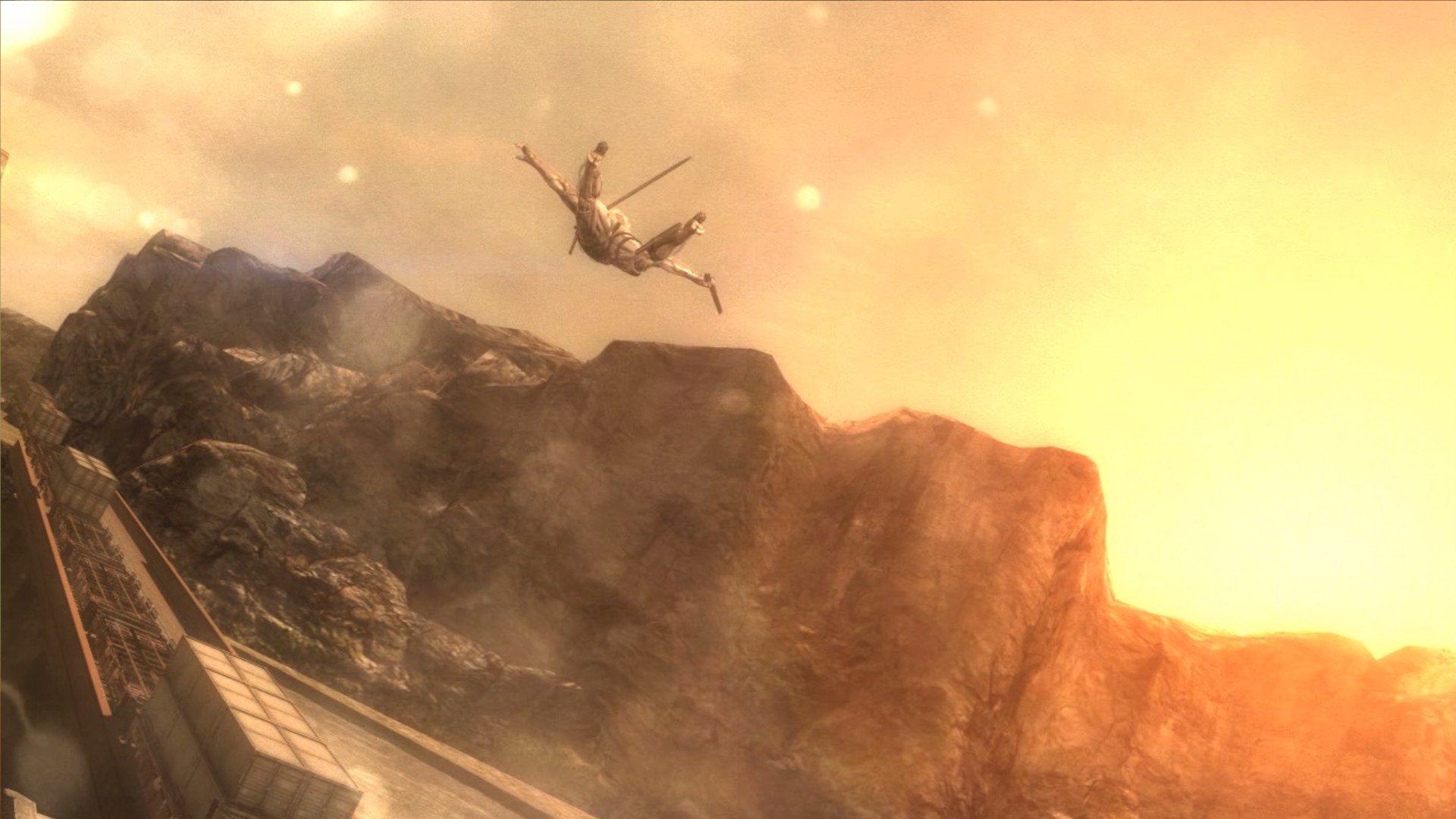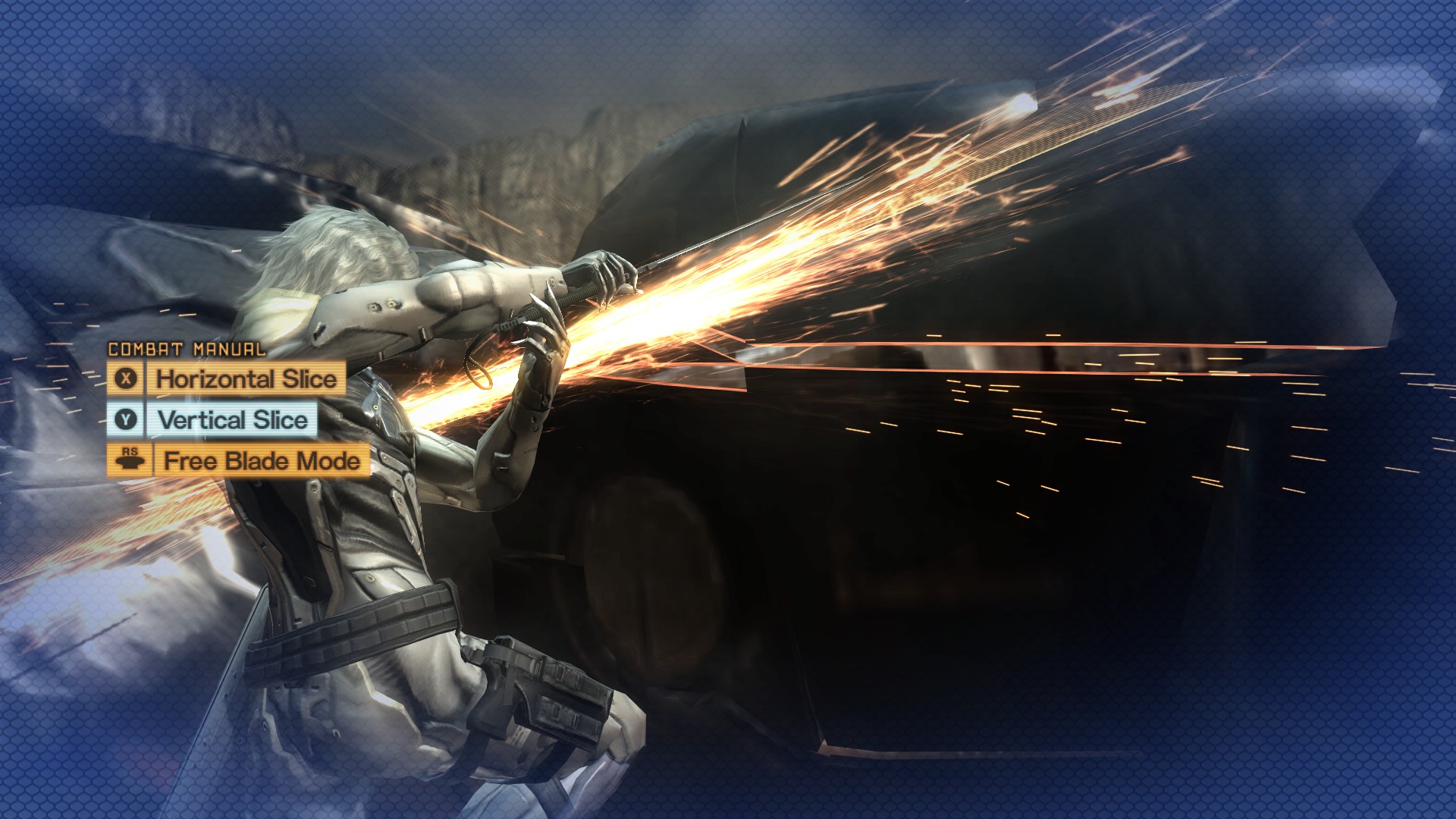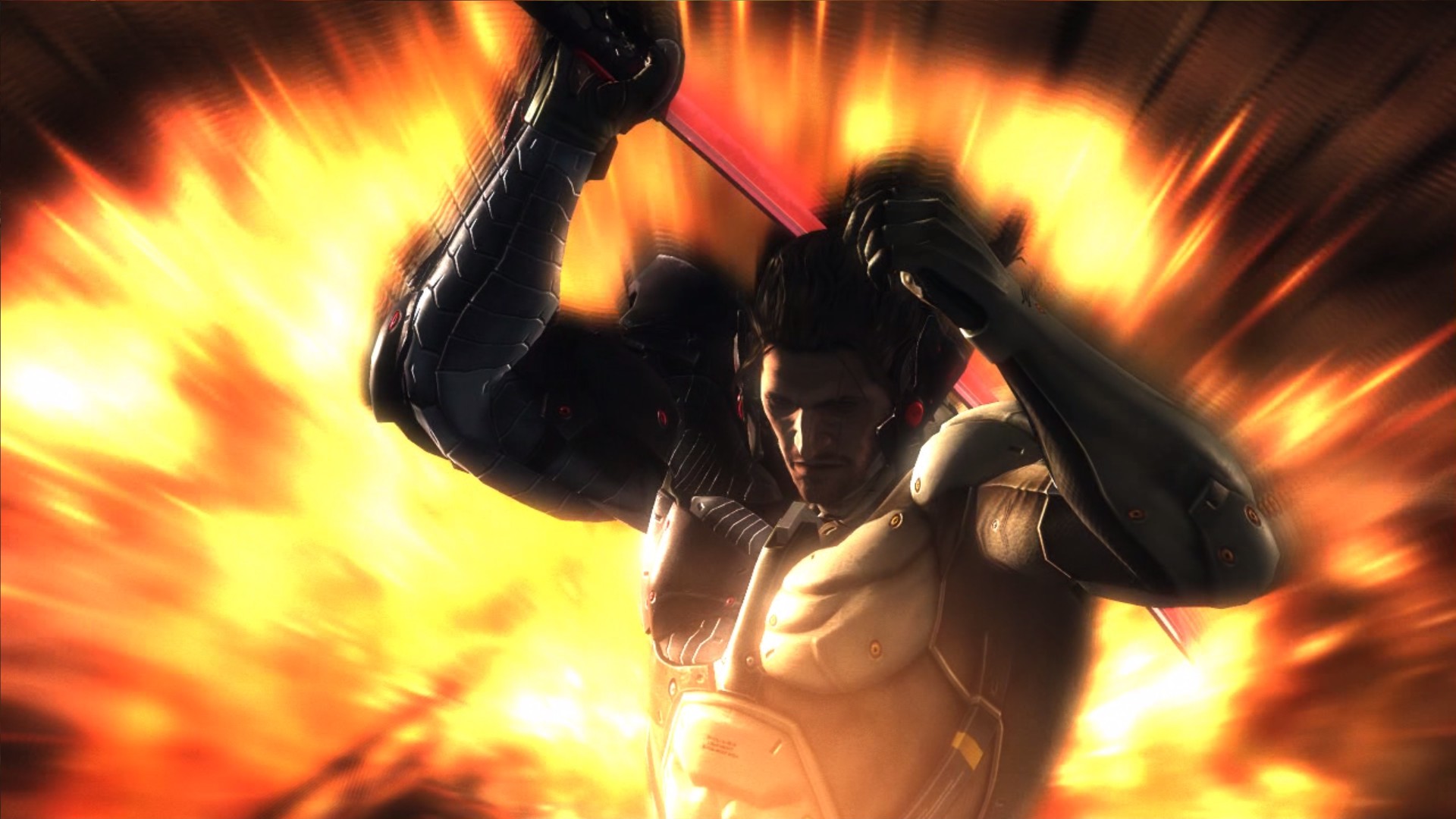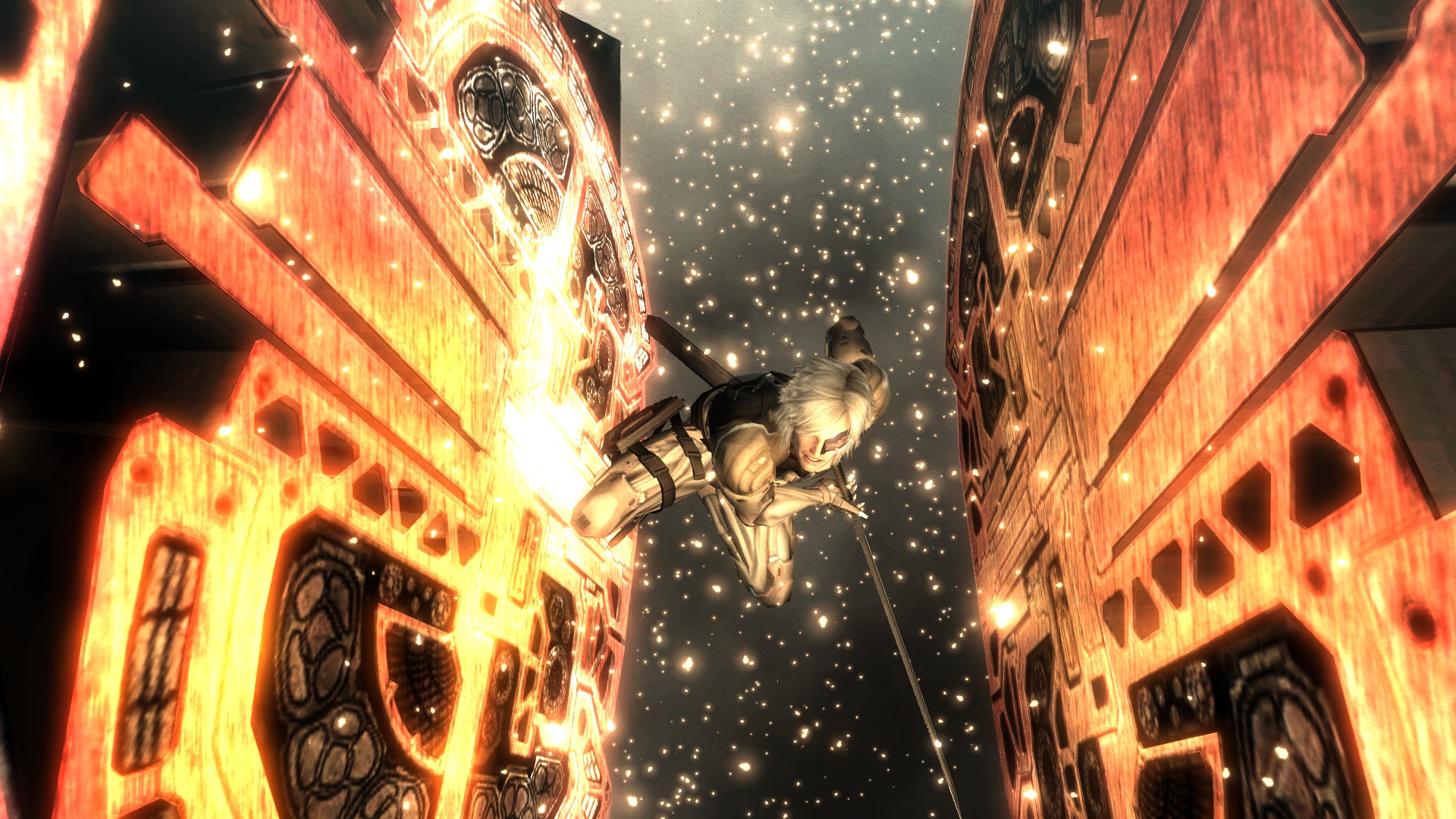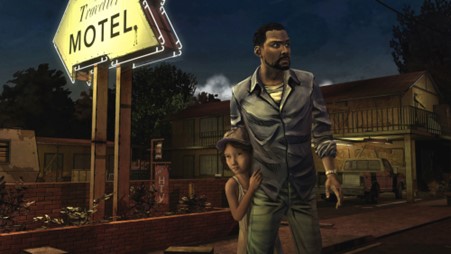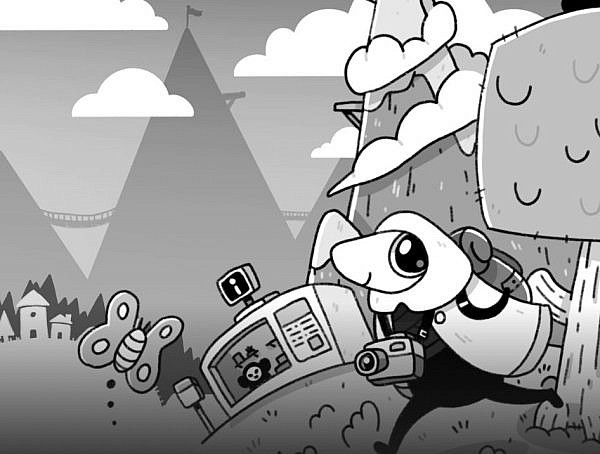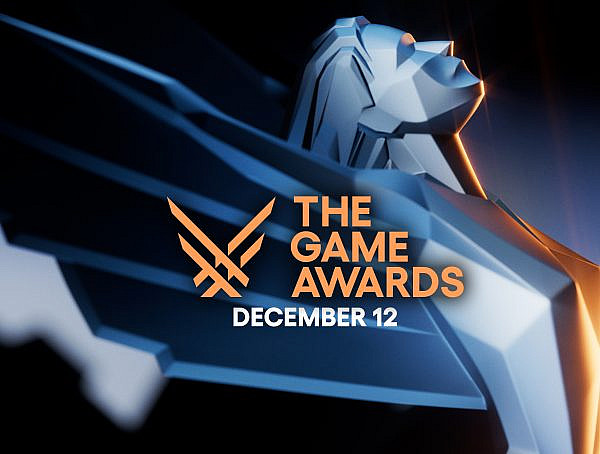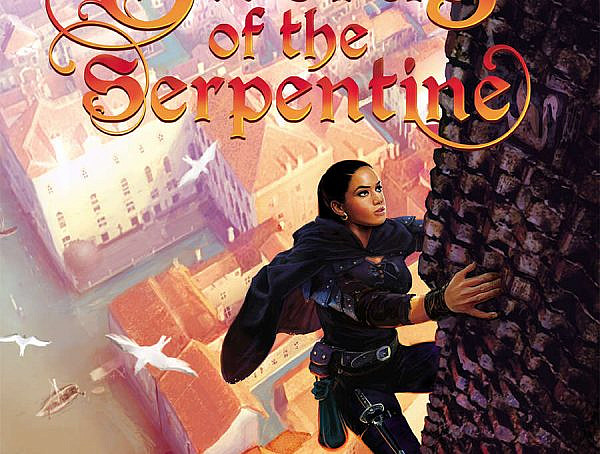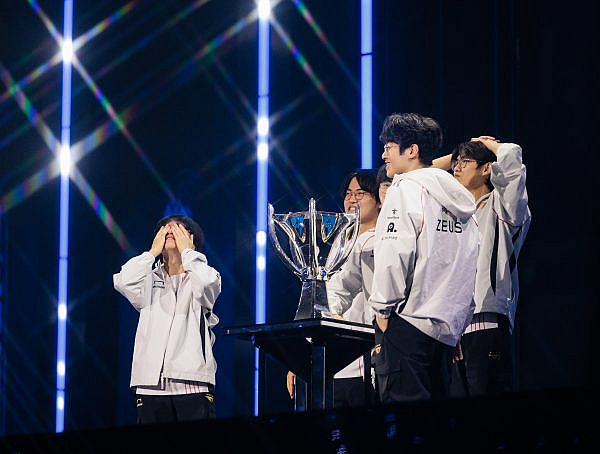The soundtrack of Metal Gear Rising: Revengeance is much more than just palatable background noise.
Metal Gear Rising: Revengeance (abbreviated as MGR:R) is an action game that surprised many skeptical Metal Gear fans, myself included, with its unprecedented quality upon its release in 2013. As enormous a deviation as it was from the usual Metal Gear formula in narrative, style, and gameplay – practically everything – it still delivered an immensely enjoyable experience of its own. Substituting the Metal Gear series’ subtitle “Tactical Espionage Action” with “Lightning Bolt Action”, Revengeance is a whole different beast altogether. While the game has been understandably lauded for its smooth and agile hack ‘n’ slash gameplay, arguably surpassing that of developer PlatinumGames’ earlier action feast Bayonetta, this article will not focus on that. There is another aspect of the game that will here receive a very much deserved closer look: the soundtrack.
The soundtrack is done in an electronic rock/metal style with heavy drum & bass influences. Utilizing the area-specific exploration phase music – battle phase music formula present in many other action-adventure games, MGR:R’s soundtrack does its adrenaline level-raising job excellently. The soundtrack has been well-liked in general, the track “Rules of Nature” even spawning a widespread internet meme. The quality of the songs, however, is a question of personal taste and is not the only factor in the brilliance of the soundtrack in the game.
Even though there are some short stealth sections, MGR:R focuses on fast-paced combat. The soundtrack works especially well in boss battles, where the songs loop over and over again, first instrumentally and then adding vocals into the mix if the player is starting to gain the upper hand. This mechanic of the soundtrack being sensitive to the combat situation has, to some extent, been utilized before in games such as Shadow of the Colossus in 2005. Despite this, the fact that MGR:R uses vocals for this purpose – instead of the song changing – is worthy of note.
This brings us into a specific aspect of the vocals: the lyrics. While many hack ‘n’ slash games – such as the Devil May Cry series – have a soundtrack featuring vocals, the lyrics of the songs are often not that relevant to the game itself. MGR:R, unlike its peers, utilizes the song lyrics in a way that complements the narrative. While this does not apply to all of the songs, most of the boss-specific songs have lyrics that add to the bosses’ narrative and lore.
“A Stranger I Remain”, for instance, – the theme for one of the first boss enemies, Mistral – concerns her past, need to belong and newfound conviction along with a sense of identity crisis. Some of these things are implicit and/or explicit in the game and its add-ons, but as a whole, the song adds to Mistral’s character greatly. The songs giving the bosses more depth also balances their often regrettably brief roles in the game.
An especially fitting example of the use of lyrics would be the final battle of the game. In it, the battle is preceded by several lengthy cutscenes, containing the clash of the protagonist and antagonist both in the physical sense and in the sense of ideals clashing through heated verbal debate. The theme song of the final boss enemy in the game features lyrics that delve into the antagonist’s fatalistic, history-is-written-by-the-victors-view of the situation, further elaborating on the antagonist’s worldview behind the clash of ideals before the fight.
The use of vocals and lyrics in MGR:R – especially due to different vocalists – thus manages to provide a very personalized feel in all of the boss battles. Using the game’s soundtrack as an example of providing support to the game’s narrative through unconventional methods, I feel many games would benefit from a more holistic approach to making games, where every aspect of the game – be it the visuals, soundtrack, gameplay or anything else – would benefit the overall experience or message of the game instead of just fulfilling its individual purpose without furthering the overall objective of a game.
You might also like
More from Features
Game Awards – Celebration of talent or a Marketing Extravaganza?
The Game Awards 2024 is over and the winners are announced. However, are they still following the same pattern that …
Worlds in a Finnish Theater: League Finals, Community, and Döner Kebab
I travelled to Helsinki to watch League finals in a cinema, and it was worth it. #leagueoflegends #esports #community #worldfinals







